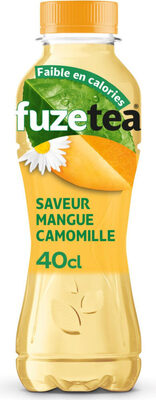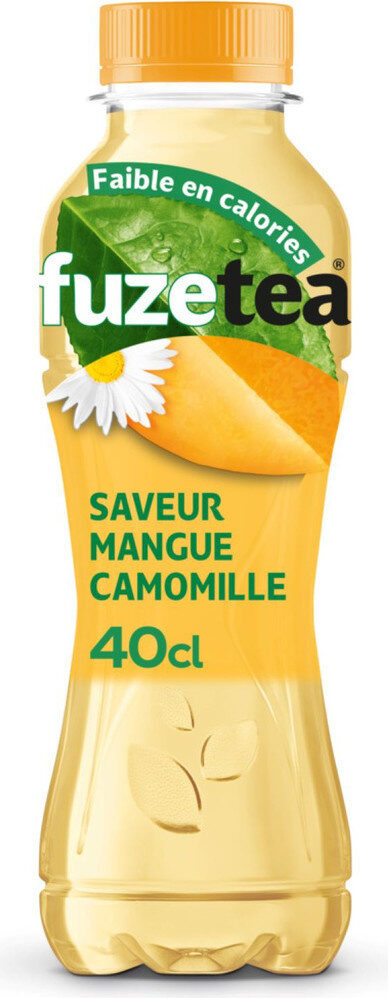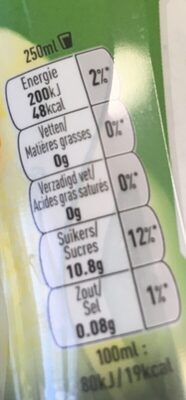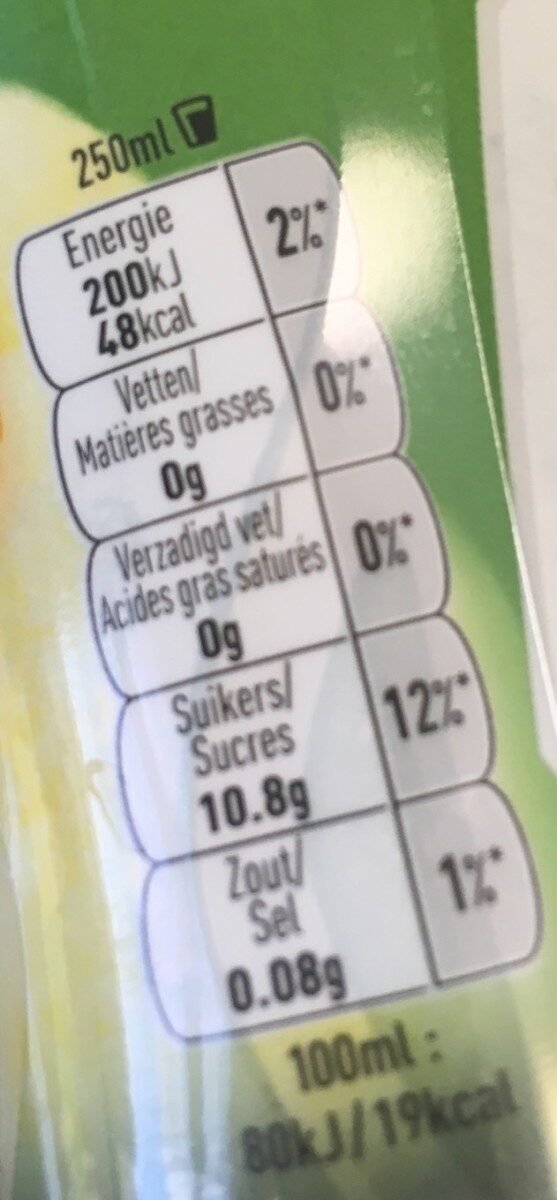FuzeTea thé vert mangue & camomille - 400 ml
This product page is not complete. You can help to complete it by editing it and adding more data from the photos we have, or by taking more photos using the app for Android or iPhone/iPad. Thank you!
×
Barcode: 5449000232489 (EAN / EAN-13)
Common name: Boisson rafraîchissante aux extraits de thé vert et de camomille, saveur mangue
Quantity: 400 ml
Packaging: Plastic, Pet-polyethylene-terephthalate, fr:Bouteille plastique, fr:Point vert, nl:Tidyman wastebasket
Categories: Plant-based foods and beverages, Beverages, Plant-based beverages, Artificially sweetened beverages, Tea-based beverages, Iced teas, Sweetened beverages
Labels, certifications, awards: Low-in-calories
Matching with your preferences
Environment
Carbon footprint
Packaging
Transportation
Report a problem
Data sources
Product added on by kiliweb
Last edit of product page on by foodless.
Product page also edited by aleene, bojackhorseman, floriane-yuka, inf, maelysd12, magma, openfoodfacts-contributors, pvanhumb, ticqs, yuka.VlA0TEF2UUZyOHN1bGNNbXBDSFU2SUprbmIyUWJWdVZCdmdRSWc9PQ, yuka.WS84ckl2aGRvOTBOdzlnUXJrekwyNHQrd2JXQVRHV3lPZHNwSVE9PQ, yuka.WjVzZU1hZ1kvY01JbE0xazdEUEkvZDEyMkp5dlJFMjBKckFvSVE9PQ, yuka.Wkw0d0FxUXRvTkFzeXRvSDNrcUYwT0JjOTRlWVhsdTFLOHNESVE9PQ, yuka.WnJvWUVJTW9udHBXaWRrYngwUDgyUE4yK3FLWVgyTzVLTUEzSVE9PQ, yuka.ZHFVY1RLVVF2TjR5eHN3YjVUN1Q1WTF3eUx5dWVUeVRjZGdCSVE9PQ, yuka.ZHZBZE43dFpwdVphd3NZNjR4VHkzb05lMklYelRHYWNEYkJCSUE9PQ, yuka.Zkw4T1RaVUZ1OXhWaS9Obi96cll4ZXhTMnFINVdWNlRNUEFWSWc9PQ, yuka.Zm9RTUVxUTVpOWcwdU05aXB5amNvTXBGMjhhNVVWcnNDTGRLSUE9PQ, yuka.ZmZ3d0NZWUhwZnNzbk5zQjVRek0wNHNvMmNLS1pFaTJCT1ErSVE9PQ, yuka.sY2b0xO6T85zoF3NwEKvllIcXPXbnTzEZj3fuGiGy_KKE6TZav1r2KLWMKg.










